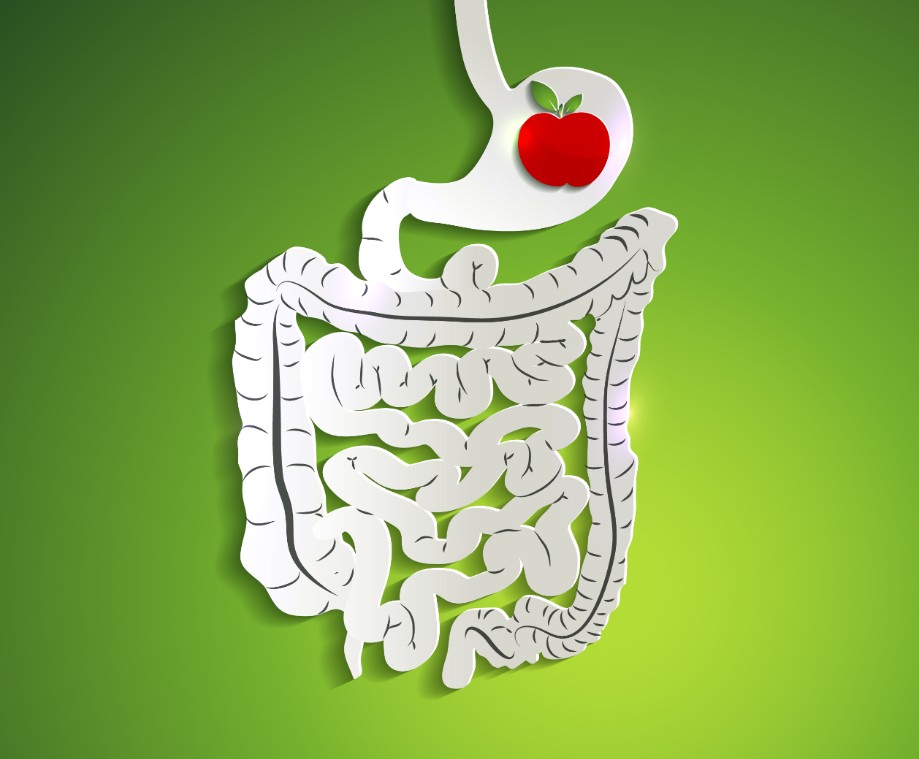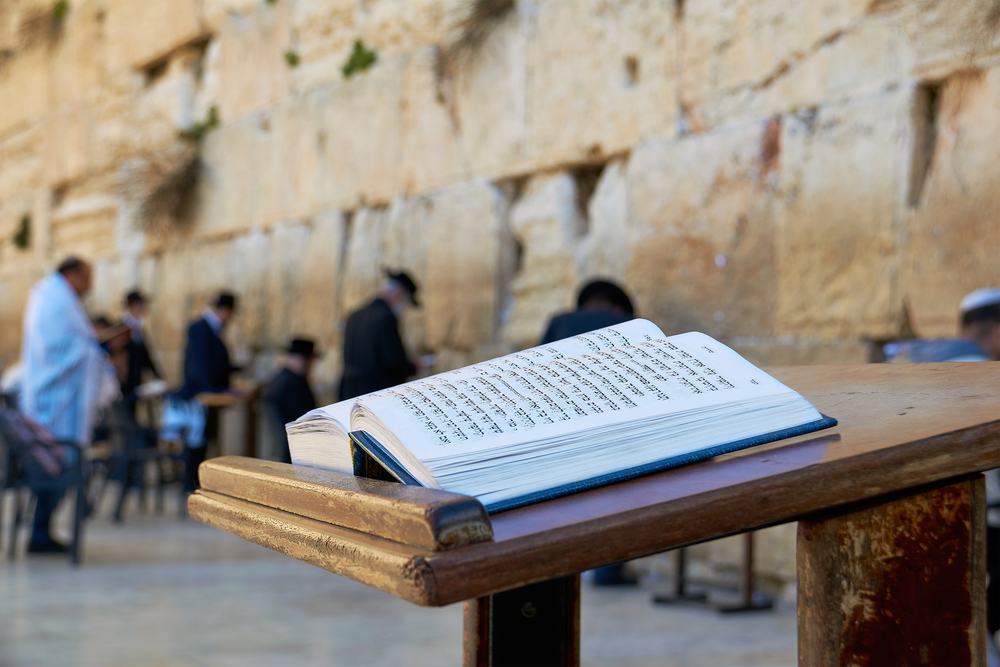Why Doesn't the Rain Crush Us? 5 Points to Ponder
Discover the wonders of digestion, the continuation of life after death, the importance of daily prayer, and surprising insights on the Torah from the Quran.
 (Photo: shutterstock)
(Photo: shutterstock)What Stops Food from Going Backwards?
In the digestive process, could food get stuck without progressing? How does food continue moving through our bodies? What pushes food along the intestines? Most importantly, what prevents food from going back to where it came from?
Waves of contracting muscles keep food moving – a process called peristalsis (Peristalsis). This wavelike muscular movement pushes different materials through the body's "tubes." These contractions are so strong that we can even eat while standing on our heads...
Food enters the stomach through an opening at the top. The stomach, which is like a muscular sack, churns, crushes, and dissolves the food to turn it into liquid. Simultaneously, it contains acids to break down the food. The stomach walls protect themselves with an inner layer of mucus. Without it, the acids could digest parts of the stomach itself, causing inflammation.
The pancreas secretes pancreatic juice, neutralizing stomach acidity. Then, bile juice from the liver breaks down fat into small droplets. These tiny fat droplets are easier to absorb in the intestine. (Photo: shutterstock)
(Photo: shutterstock)
After an hour, the stomach pushes the digested food out through a small opening called the "pyloric sphincter" (The pyloric sphincter). The food enters the small intestine—about 3.5 meters of winding tube—where we absorb most of the necessary nutrients from the food, such as sugars, proteins, fats, vitamins, and minerals. After about an hour and a half, the small intestine has absorbed most of the essential nutrients. The remaining mass enters the large intestine through the "ileocecal sphincter" (The ileocecal sphincter)—a one-way valve preventing food from returning to where it came from.
What remains of the food is a mixture of undigested food, waste, and dead cells from the intestinal walls. The large intestine's main role is to absorb the liquid, salts, and leftover nutrients, turning indigestible food into thick feces, which exits through the anus. Finally, after about 12 hours, we expel the remaining contents of our meal.
Humans are created with such incredible wisdom and intelligence, with well-coordinated and integrated systems, each organ in its rightful place, every substance in precise amounts, every action at the appropriate time. How can one think and believe that this creation came from an explosion, by chance?!
Raindrops
Have you been on a trip in the north of Israel? You probably didn’t miss the opportunity to visit attractions that include water, nature, and beautiful landscapes. All of this is epitomized by the abundant, rushing, and roaring waters flowing in the impressive waterfalls of the Golan Heights and the Galilee finger.
A waterfall is a water source in a stream or river where water falls forcefully onto a steep face, from high to low.
Have you ever stepped under a waterfall? It's thrilling to sit or stand beneath the powerful flow. However, sometimes the water's fall is so strong that there are enormous waterfalls in the world that may crush a person when falling from heights of tens and hundreds of meters.
But behold the wonder... Observe the rain descending upon us from a great height.
Did we notice that the water lands and descends in gentle droplets that caress the earth and do not harm humans? This is strange, for during their long aerial journey from the clouds to the earth, the raindrops do not touch each other, which would turn them into a mighty waterfall, forcefully pounding our heads, altering the earth's surface, and washing all delicate seeds from it.
The wonder grows even sevenfold when considering that even when strong winds blow, no drop touches its neighbor, but the rain, with all its drops, shifts as one unit to the side, diagonally...
Despite clouds holding such an enormous amount of water (an average cloud contains about 300 million kg of water), the rain falls on us as droplets. Have you thought about what would happen if conditions were different, and rain fell on us as destructive waterfalls? Only a being with supreme intelligence and unlimited ability, who cares deeply for His creations, can establish such wise laws in nature...
Why Do We Need to Pray?
Every Jew prays three times a day. If we reflect, we will notice that we actually pray for what we lack. Here we must ask and wonder, after all, the Creator of the Universe created everything from the smallest plant to the gigantic planets, he sustains and provides for everything from the majestic reem horn to the tiniest lice eggs, if so, why do we need to request and demand from Him? Does He not know what a person needs? Behold, He examines hearts and minds!
So what is the purpose and reason for these prayers?
This is likened to an only child, beloved by his father with all his heart, who goes to a summer camp for two weeks. The night before departure, he turns to his father and says: "I need money for my time at the camp."
 (Photo: shutterstock)
(Photo: shutterstock)The father nods and gives him a hundred-shekel bill. "Dad, I need more; I'm going for two weeks." "I know, son," the father replied. "When you need more, call me, and I'll send you more of what you need."
The son set off for the trip, enjoyed the experiences and attractions, and when the money in his wallet ran out, he remembered his father, called him, and requested more pocket money. The father fulfilled his promise and sent him what he wanted. Then the son understood why his father did not give him everything he wanted straight away. The whole reason was the father’s desire for their bond to continue even when the son was far from home.
The essence of prayer is our connection with the Creator. He knows exactly what we lack and what we need, but He desires that His beloved children maintain a relationship with Him, turn to Him, request from Him, acknowledge His reign, and recognize His divinity.
Life After Life
The Torah of Israel presents a claim that is capable of completely transforming our perspective on life.
In a simplistic view, a person seems to live for 70, 80, or perhaps 120 years, and with their death – their life ends. But the Torah of Israel declares that this is not so: this world is essentially just a small and tiny transit station that we pass through for a very limited time, and when we leave it, that is when we pass away, our soul (which is, our true self) continues to live forever, as it says "And the dust (body) returns to the earth as it was, and the spirit (soul) returns to Hashem who gave it." (Ecclesiastes 12:7).
And behold, today, modern science has also "discovered" this. There are many studies reporting individuals who have experienced clinical death and returned to life, stories of soul reincarnations, communication with dead spirits through séances (something actually forbidden by the Torah), and more. It has been definitively proven, even to researchers, that the true "self" of each of us is the spiritual entity enveloped in a flesh-and-bone woven garment, and this spiritual "I" is the one that feels, rejoices, suffers, loves, plans, and yearns. The most interesting and revolutionary scientific conclusion is that our true "I," that is, we ourselves, continue to live forever even after we leave the physical body!
 (Photo: shutterstock)
(Photo: shutterstock)Indeed, there is life after life. This world is a very narrow passage leading to a great and wonderful world to which we have no grasp and understanding. We living in this world resemble a fetus in a mother's womb, surrounded by water and sustained from the placenta. That is its whole world, and it does not feel the need for anything beyond that. It also does not conceive of life forms other than what it is accustomed to. Then comes the day it suddenly moves into another world – a huge world, lit with many lights and colors, interesting, and its form of life is completely different from what it has known.
Thus, when a person dies, he is actually born anew! The soul, which was imprisoned within the body, exits and is freed into an infinite, eternal realm, beginning to live completely different lives – the life of souls. Of course, we, who still live in this world and are confined within our bodies, cannot at all understand the essence of life beyond.
This knowledge, this understanding – completely changes our life perception. Until now, we thought by our limited understanding that our lives culminate in our years on earth, and based on this perception, we understood that a person should do in his life what is most comfortable and pleasing to them, to glean maximum pleasures and experiences from life, extracting the most and best, as in "Eat and drink, for tomorrow we die."
However, considering the knowledge that we continue to live forever, profound questions arise in our mind: What will our life in the world to come look like? And do we have any influence over it? If ideal life is in the world to come, why do we come to a "transit station" of 80, 90, hopefully 120 years in this world? Is there a purpose and aim for it? Why were we created at all?
The Quran's Take on the Torah
Have you ever wondered about the Quran's attitude toward the Torah of Israel? According to contemporary reality, it seems that there is animosity and hostility towards the Torah of Israel. Is it really so?
The Quran contains many praises about the Torah of Israel:
Firstly, it is described as casting light and guidance for humanity: "Say, who brought down the Book which Moses brought to spread light and to guide people rightly?" (Surah 6: "The Cattle," verse 91).
Secondly, the Quran states that the Torah is also a source of guidance and mercy: "We gave Moses the right path, and made the Book the inheritance of the Israelites: it is guidance and warning to people of understanding." (Surah 40: "The Forgiver," verse 53).
 (Photo: shutterstock)
(Photo: shutterstock)Another source: "And before it, the Book of Moses, as a guide and mercy... therefore do not doubt it." (Surah 11: "Hud," verse 17).
Thirdly, in the Quran, Mohammed advises his followers to consult the Jews in case doubt arises regarding the Quran: "If you are in doubt concerning what we have sent down to you, then ask those who were reading the scripture before you (the Jews). The truth has come to you from your Lord, so do not be among the doubters." (Surah 10: "Jonah," verse 94).
In summary, as mentioned, the Quran has many praises for the Torah of Israel, and it even states that if there are unclear issues – one should turn to the Bible.
Thus, Muslims should love and admire us. So, it's unclear where the hate and desire to destroy us stems from.

